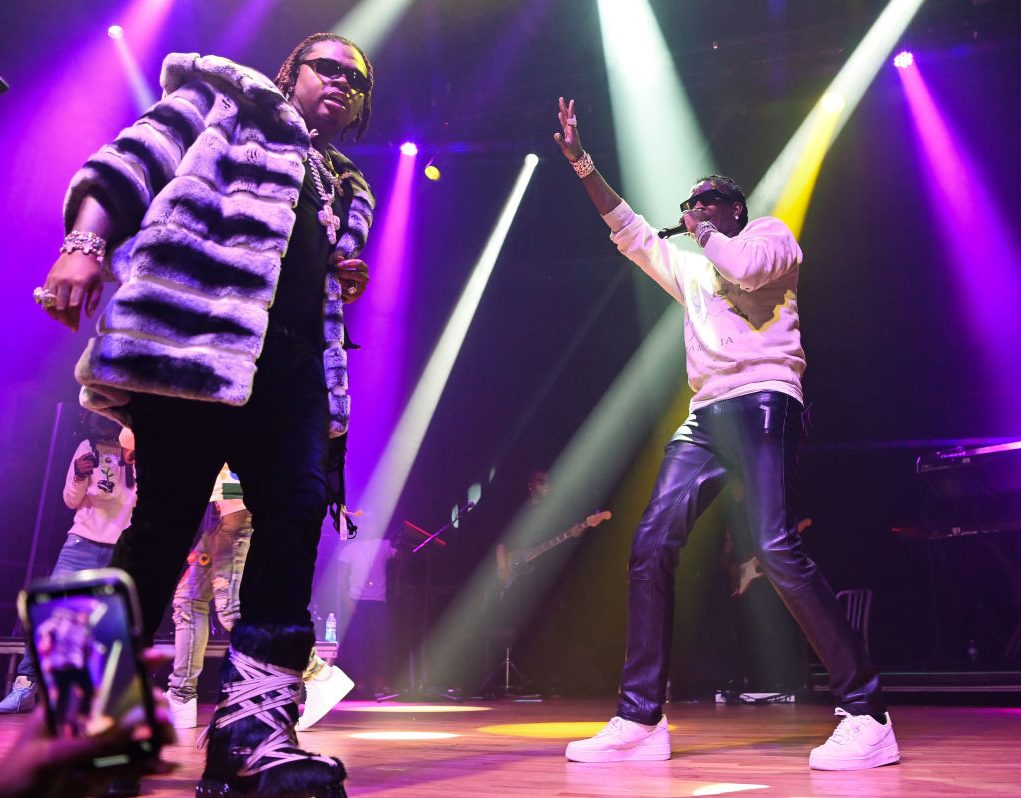
Source: Prince Williams / Getty
Young Thug and YSL Records have been heavily scrutinized, and now a new documentary from Rolling Stone will shed light on the rapper and the recent criminal allegations against him and his label.
It was announced last Thursday (July 7th) that Rolling Stone’s film division is partnering with Jigsaw Productions, the company helmed by Academy-Award-winning filmmaker Alex Gibney, to develop a series of documentary projects on the Atlanta rapper and his rise to fame. There will also be a focus on the current criminal case against Young Thug and fellow rapper Gunna along with 26 other individuals for involvement with the Young Slime Life street gang. The aim of the documentary project will look to capture the investigation and the criminal proceedings in real-time. Young Thug is accused of being a co-founder of the gang that has been held responsible for multiple murders, shootings, and carjacking incidents in the city.
“We’re thrilled to partner with the talented team at Jigsaw to tell this ambitious and important story about one of the most compelling and controversial music scenes of the moment,” Rolling Stone CEO Gus Wenner said in the announcement. The deal between the companies will see the documentary and audio projects produced by a team with Wenner’s involvement. Senior Vice President Jason Fine will serve as executive producer for all projects. “Rolling Stone’s deep coverage of Atlanta hip-hop gives us unique access and perspective on this story, and we’re excited to tell one of the most fascinating cultural stories today as it unfolds in real-time.”, he said. Stacey Offman and Richard Perello from Jigsaw Productions will executive produce the documentary series, and Sruthi Pinnamaneni will lead the audio adaptation.
The case is also making headlines for the controversial focus by the prosecution on rap lyrics penned by Young Thug and Gunna along with music videos that they claim shed light on their criminal activity. Critics have stated that the use of rap lyrics in these cases presents an infringement on the accused’s First Amendment rights. The situation has already spurred New York lawmakers to put forth a bill that would restrict the usage of a defendant’s music as evidence in a criminal trial.


















